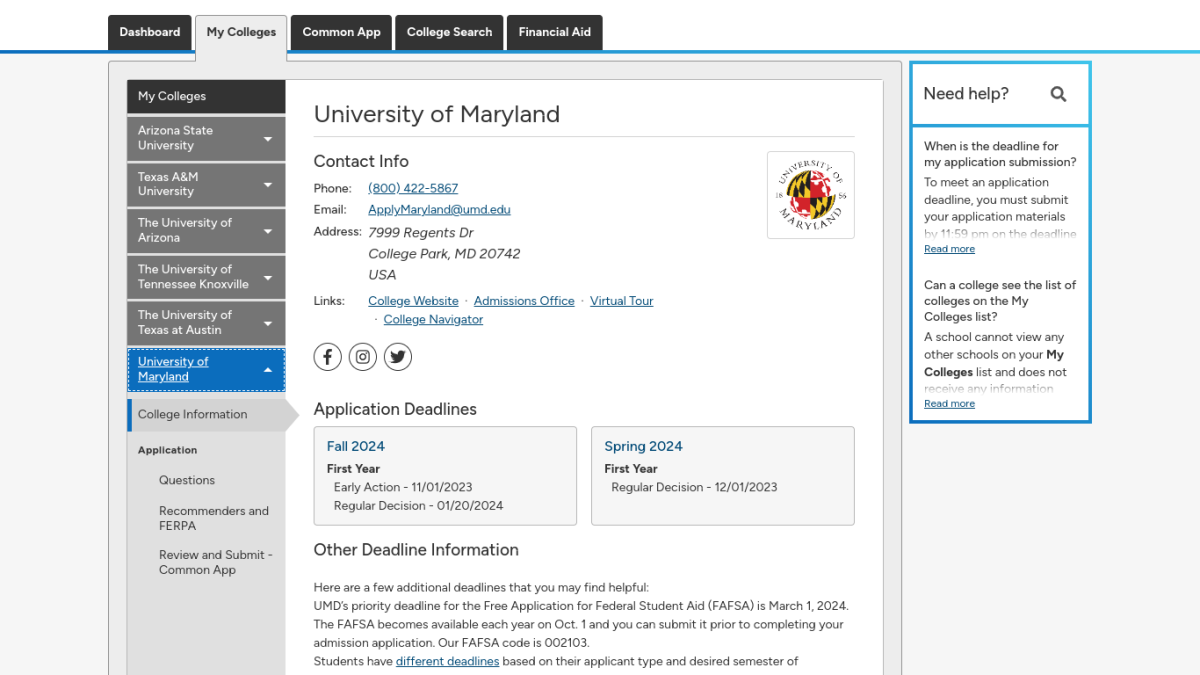The college application season officially starts when the Common App opens on Aug, 1, in three months. This season is stressful and it’s only worse if you have misconceptions about how the process works. Let’s clear up some of these misconceptions to make it easier and less stressful.
The first myth that students will get hooked on is that colleges with high acceptance rates are bad colleges, which isn’t true. Colleges with high acceptance rates have it that way because that’s the student population they want. Selectiveness is about the number of people applying and the number of students the school wants to admit.
UCLA had 145,910 applications for the fall 2023 semester and only 12,737 were admitted: 8.7% matches closely to their typical 9% acceptance rate. Their acceptance rate is low because large numbers of students apply but UCLA only wants a small population of applicants.
UCLA is a well-ranked university, which makes it a popular destination for students. However, the University of Arizona has a high acceptance rate and is on par with top schools in the nation in terms of being good for job preparation, 92% of graduates find a job within 2 years of graduation. UofA had 56,200 students apply and 48,332 students got accepted to the university, which is an 86% acceptance rate.
When you visit or research UofA one thing you will learn is that UofA is among the top research universities in America. They get funding for research that is on par with Ivy League universities and ranks No. 155 internationally, No. 55 in the US and No. 25 among U.S public universities, according to Times Higher Education’s World University Rankings 2024. University president Robert C. Robbins is proud that UofA is a highly-ranked university. “I am thrilled to see the University of Arizona earn such stellar marks from this prestigious international ranking,” Robbins said to the UofA news.
Another misconception is that acceptance is based on the essays alone so they have to be perfect. Admissions officers look at your whole package: grades, test scores, essays, extracurriculars and resume. In the essay you want to look genuine; The point of the essay is to tell the university who you are and why you want to go to that university. A who, what, where, when and why approach to the essays is good because it shows the university who you are and your intentions during your four years there. It is important to be honest and genuine because essays that sound “too perfect” may raise red flags.
University of Princeton’s Susan Osborn wrote that admissions officers want to see evidence of softer skills. “Of this core group of skills, the two most sought-after skills admissions officers want to see evidence of are empathy and passion. These are the two key qualities college admissions officers want to see represented in your common app essay,” Osborn said.
A related misconception is that your test scores are what make or break acceptance, which isn’t the case anymore since many schools no longer require students to submit test scores. Test scores help an admissions officer understand how you’ll academically do in college. This is important because an admissions officer won’t accept you if they know that you will struggle with the rigors of the university. Anna Ivey, founder of Ivey Consulting, a college and graduate school consulting firm, said to U.S. News “We all know people who are very gifted academically and they are just not good standardized test-takers.”
Submit test scores if you think they represent you well, but if you think those scores don’t represent your academic skill then don’t and it shouldn’t have the effect of you being denied just because you didn’t submit a test score. However, if you are applying to a school that requires a test score then you have to submit it. The number of schools requiring test scores is increasing and it is important to be within or above a university-recommended score range. If you aren’t in that range with a school that requires it then getting accepted will be harder.








![Editors-in-Chief Ahmed Ibrahim, Helen Manolis, Cameron Cowen, Alex Grainger, Emory Scofield, Hayley Gottesman, Rebekah Buchman and Marley Hoffman create the first print magazine of the year during the October press days. “Only a quarter of the schools in MCPS have programs that are like ours, a thriving, robust program. That makes me really sad. This is not just good for [the student journalists] to be doing this, it’s good for the entire community. What [student journalists] provide to the community is a faith in journalism and that continues for their lifetimes," Starr said.](https://woottoncommonsense.com/wp-content/uploads/2025/10/wmpoFTZkCPiVA3YXA4tnGoSsZ4KmnKYBIfr18p3l-900x1200.jpg)